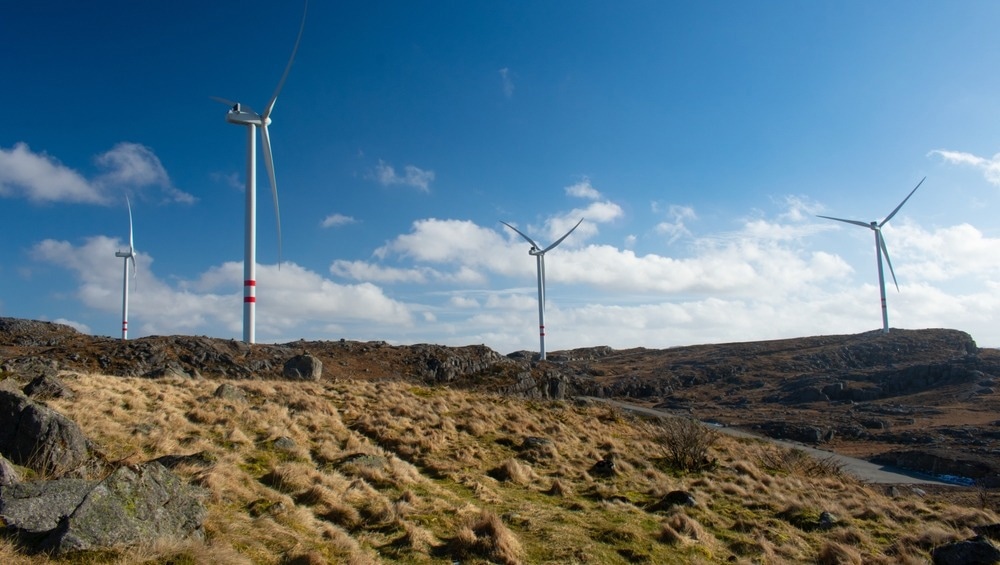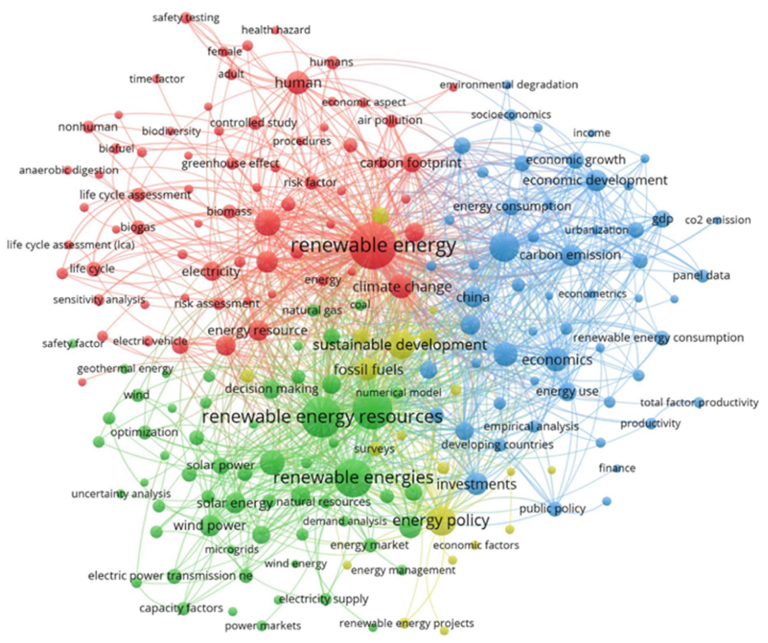A team of researchers recently published a paper in the journal Energies that investigated the factors influencing the adoption of renewable energy (RE) in European Union (EU) countries.

Study: Determinants of Renewable Energy Development: Evidence from the EU Countries. Image Credit: FreezeFrames/Shutterstock.com
Background
RE can play a crucial role in facilitating the sustainable development of the global economy. Although conventional energy resources, such as oil and natural gas, are often considered suitable for consumption due to the absence of viable alternatives, they are hazardous to the environment and adversely affect human health, which has shifted the focus towards RE.
In Industry 3.0, technological advancements have promoted the development of advanced RE equipment. The cost of RE generation has reduced significantly in recent decades. For instance, the global levelized cost of onshore and offshore wind energy and solar energy decreased considerably between 2011 and 2020, owing to the scale effect and technological improvements.
![Global levelized cost of solar photovoltaic, offshore, and onshore wind energy in 2011–2020, developed by authors using [2].](https://d12oja0ew7x0i8.cloudfront.net/images/news/ImageForNews_60124_16644397967356327.png)
Global levelized cost of solar photovoltaic, offshore, and onshore wind energy in 2011–2020. Image Credit: Piven, V et al., Energies
Thus, RE is increasingly becoming a suitable alternative to mitigate the adverse effect of fossil fuels on the environment. Additionally, RE technology can improve energy stability and economic resilience through supply diversification. Resource-starved countries are considering the use of RE to lessen their dependence on imports.
The European Union (EU) has aimed to become fully climate-neutral by 2050. The development of RE technology can play a critical role in achieving this goal. In the last few years, the share of RE in the total energy mix has increased considerably and crossed 20% in 2020. RE has accounted for a leading share in the energy mix in Latvia, Finland, and Sweden, while the share of RE was lowest in Malta, Luxembourg, and Belgium.
The share of RE was highest in electricity generation and lowest in transport.
Although RE is gradually witnessing higher adoption, a complete transition to RE will be challenging without understanding the factors, including environmental, institutional, technological, social, and economic factors that are affecting its development.
The Study
In this study, researchers investigated the factors of RE development and deployment using random-effects generalized least squares (GLS) regression for the panel data from the 27 EU member states from 2011-2020 to promote RE adoption in EU countries. All data was obtained from different trustworthy and reliable organizations, including the Heritage Foundation, Transparency International, the Economist Intelligence Unit, the World Bank, and Eurostat.
Researchers evaluated several hypotheses concerning RE adoption. These include a high level of economic development that stimulates the RE sector, higher business start-up procedure costs discourage RE development, higher employment in knowledge-intensive services and advanced technology manufacturing sectors positively influence the RE sector, a high level of institutional quality promotes RE consumption, and a favorable geographic location promotes RE sector growth while an abundance of fossil fuels hinders the growth.
Two empirical models, designated as model 1 and model 2, were developed to assess the impact of different factors on RE development. Both models possessed the same independent variables and different dependent variables. In model 1, the share of RE in the overall energy mix was used, while the per capita consumption of RE was utilized as the dependent variable in model 2.
Researchers also used dummy variables to evaluate the impact of the abundance of fossil fuels and favorable geographic locations on RE development. Among the EU member states, only the Slovak Republic, Luxembourg, Hungary, the Czech Republic, and Austria did not possess favorable geographic locations. Data obtained from the United States Energy Information Administration was used to determine countries in the EU with substantial oil and gas reserves.
![Share of energy from renewable sources in the EU (2011–2020), developed by authors using [6].](https://d12oja0ew7x0i8.cloudfront.net/images/news/ImageForNews_60124_16644398057216477.png)
Share of energy from renewable sources in the EU (2011–2020). Image Credit: Piven, V et al., Energies
Observations
A high level of economic development expressed in terms of per capita gross domestic product (GDP) stimulated the RE sector in the EU countries. However, the impact was not significant.
Higher business start-up procedure costs discouraged the development of the RE sector. Thus, governments must implement several economic deregulation measures and simplify licenses and permits.
Measures such as the digitalization of public services can assist in promoting the dematerialization of the economy, improving managerial processes, and tackling corruption. Governments must invest in website creation or development of special software where different public services can be availed easily.
Growth in unemployment adversely impacted RE development to a significant extent, while higher employment in knowledge-intensive services and advanced technology manufacturing positively impacted RE deployment.
In the future, new skills and high proficiency will be required in RE jobs. Thus, policymakers must promote science, technology, engineering, and medicine (STEM) education by spending on educational infrastructure and enhancing the learning standards.
Additionally, policymakers must encourage lifelong education by cooperating with local authorities and/or universities. Every educational transformation must include environmental awareness.
Institutional quality demonstrated a positive impact to a certain extent on the development of RE. The level of democracy did not display a significant impact on the RE sector growth as all EU countries were democratic to a lesser or greater extent.
However, the participation level of people in political processes positively impacted the RE sector. Thus, policymakers must create a conducive environment for non-government organizations (NGOs) through the establishment and implementation of a reliable legislative framework. Civil society must promote a green economy and sustainability.
Although the impact of corruption on RE development was negative, the extent of the negative impact was statistically insignificant. Free economies demonstrated better RE development.
Thus, governments must protect companies and individuals from illegal actions, develop open and green financial markets, and secure the fiscal environment. Moreover, governments must create awareness about green financial markets and integrate them into traditional markets.
The oil and gas reserves of EU countries did not adversely impact the RE sector growth. Countries can use oil and gas revenue to develop the RE sector and reduce their dependence on conventional energy resources.
Favorable geographic locations facilitated the development of the RE sector. However, countries without such locations can also promote RE using existing advanced technologies that enable RE generation in adverse weather or climatic conditions.

The network map of bibliometric analysis of RE development (created by authors, based on data from Scopus). Image Credit: Piven, V et al., Energies
Conclusion
To summarize, the findings of this study demonstrated that RE promotion depends on the high quality of public governance, educational reforms, business freedom and economic deregulation, implementation of economic decarbonization measures, and greater participation of citizens in political processes.
However, more research is required to determine the impact of media and press freedom, poverty level, income distribution, and gross fixed capital formation on RE development covering a larger number of countries and longer duration.
Disclaimer: The views expressed here are those of the author expressed in their private capacity and do not necessarily represent the views of AZoM.com Limited T/A AZoNetwork the owner and operator of this website. This disclaimer forms part of the Terms and conditions of use of this website.
Source:
Piven, V., Sotnyk, I., Kurbatova, T. et al. Determinants of Renewable Energy Development: Evidence from the EU Countries. Energies 2022. https://www.mdpi.com/1996-1073/15/19/7093